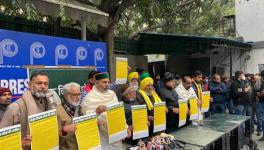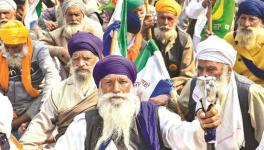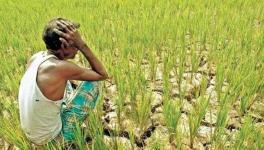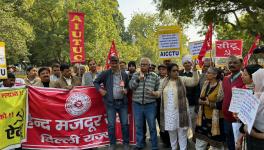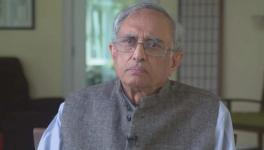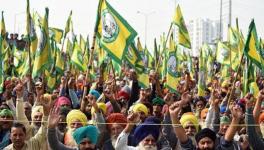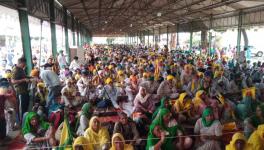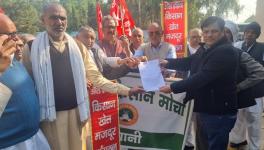Farmers’ Protest: Meet the “Martyrs” who Will Never Return Home
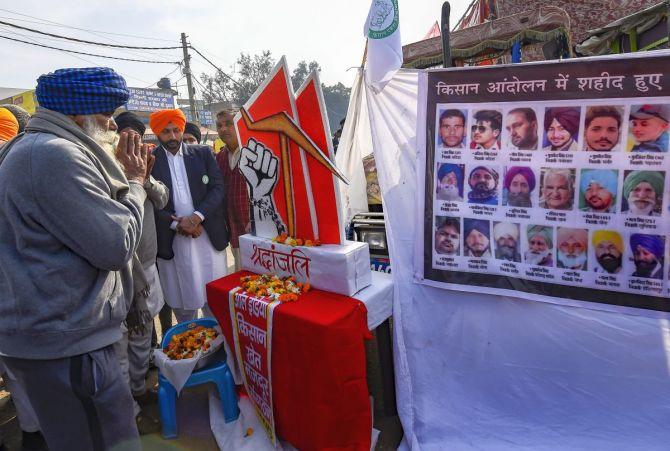
New Delhi: Sukhdev Singh, a small farmer, had been taking part in the farmers’ protest at Delhi’s Singhu Border from December 12 against the three newly enacted farm laws. The 63-year-old retired employee of the Punjab State Tubewell Corporation (now Punjab Water Resources and Development Corporation) was returning home to Fatehgarh district’s Dadiana Dadiana village on December 14, for some paper work related to his pension. However, when he didn’t reach Chunni Kalan village till 9 in the night, his eldest son, Gurdeep Singh—who was waiting to pick him up—started calling him. After repeated calls, a stranger responded to inform him that Sukhdev has met with an accident and has been rushed to to a government hospital at Mohali.
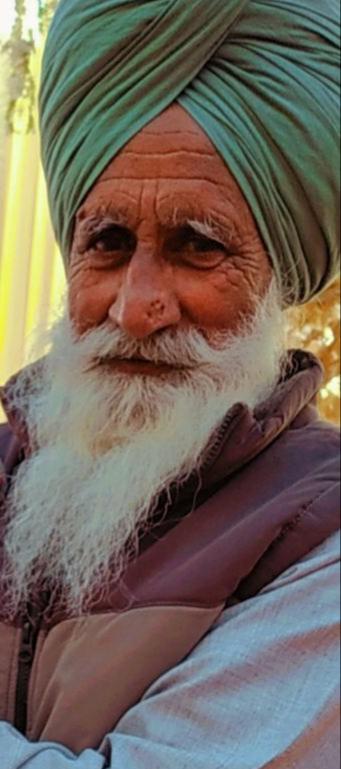
Sukhdev Singh
As Gurpeet rushed to the hospital, he found his father’s blood stained body lying in the hospital’s mortuary. “When I saw him on the stretcher, it looked as if he was in a lot of pain and was asking me to take him home. I went closer but he was there, unconscious, with no trace of life. I had never felt weaker,” Gurpreet told NewsClick over phone from his village in Bassi Pathana Tehsil of Fatehgarh Sahib district in Punjab.
As many as 33 farmers, according to the All India Kisan Sabha (AIKS) – one of the farmers body which has been at the forefront of the movement, have died since November 26 (when the protests began) due to accidents, illness and hostile weather conditions. Farmers who have been staging dharnas at different entry points of the national for the past 24 days observed ‘Shradhanjali Diwas’ on December 20 at all protest sites to mark the death of protesters whom they call “martyrs”.
Also read: We Know Modi Well, He Cannot Fool Us: Gujarat Farmers
A heartbroken Gurpreet said his father, had gone along with his friends to participate in the protest. “He was supposed to stay a little longer, but he was called by his department — from where he retired on October 31, 2018 — to submit few papers for release of his pension. He had called me on December 14 morning, asking me to pick him up from Chunni Kalan. He had told me that he would return to join the protest (after his work was done),” he said.
The vehicle which Sukhdev was riding was hit by a truck carrying building material somewhere near Bhago Majra in Mohali district, and both died on the spot.
‘My husband has sacrificed his life for the motherland; therefore, I don’t regret the loss’
“My father was extremely upset since the three black laws were passed by Parliament. After his retirement, the small land holding (five acre) is our only source of livelihood. I am not educated enough to go for a government or a private job; therefore, I do farming. My younger son works as a pharmacist with the state’s health department on contract basis. He gets too little to bear the family expenses,” he said.
Commenting on the government’s refusal to accept the farmers’ demand that the legislations be rolled back, he said, “Even though the government’s muscular approach is unfortunate, let’s see what happens next. But, I am sure the loss of so many previous lives will not at all go waste as it has made people more determined to take the struggle to its logical end. The government will have to accept the demand sooner or later.”
Deep Singh, who was accompanying Sukhdev that fateful evening, also died in the accident. A resident of Popna village in Kharar Tehsil of Mohali district, which is officially known as Sahibzada Ajit Singh Nagar district, the 60-year-old was a tube-well operator with the Water Resources and Development Corporation and had retired in 2014. He was a marginal farmer with a land holding of one acre. He is survived by his ailing mother, wife and an only daughter.
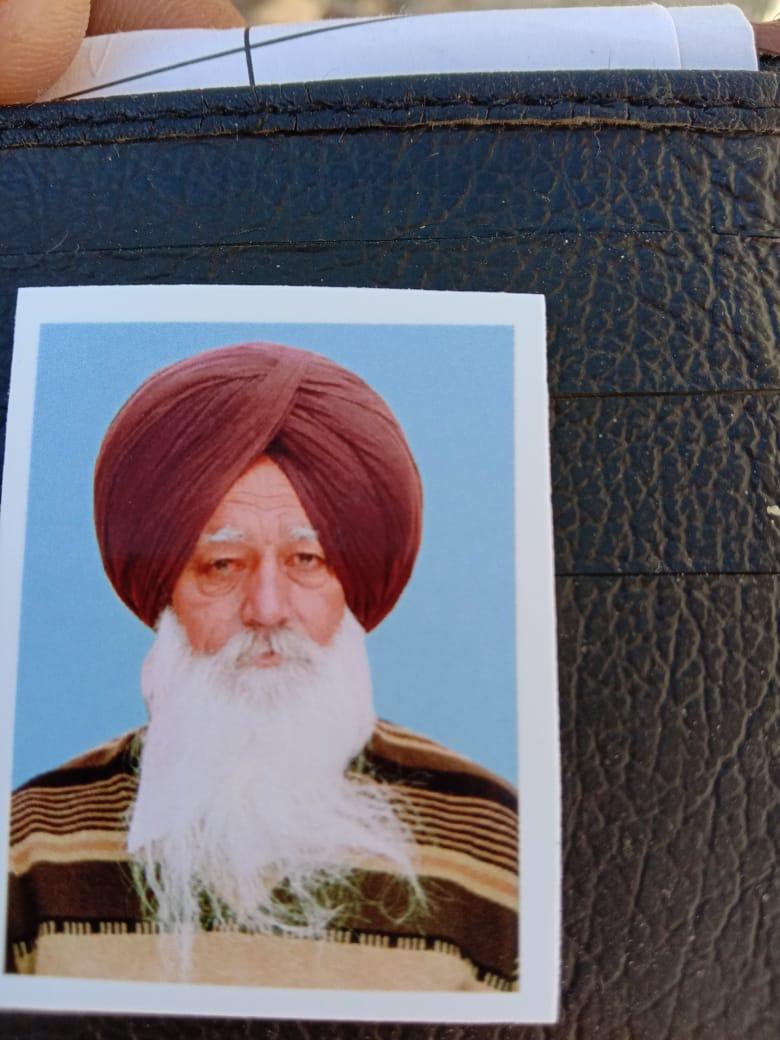
Deep Singh
He, too, had gone to Singhu Border on December 12 with Sukhdev and was returning to his village for a few days for farm-related works on December 14.. The duo were accompanied by nine others.
“We found out about his death from the sarpanch (village head). The last rites were performed at 11 am the next day. Our entire family is devastated and has been unable to come to terms with his passing away,” said the deceased’s son-in-law Satvinder Singh.
Also read: At Ghazipur Border Protest, ‘Busting’ BJP’s Claims Over Farm Laws Keeps Passions High
Deep’s wife Bhupinder Kaur, 54, however, seemed resilient. “My husband has sacrificed his life for the motherland; therefore, I don’t regret the loss. But I must tell you that the struggle, which involves martyrdom, always turns into a revolution. And history is witness to the fact that such revolutions have uprooted those in power. Truth always triumphs. I am sure the martyrdom of these people will not go to waste; this will prove to be the last nail in the devil’s coffin. We will win this battle,” she told NewsClick.
‘It pains us when the farmers are called Khalistanis, Naxalites and anti-nationals’
Another farmer, Balbinder Singh, 68, a former range officer with Punjab’s Department of Forests & Wildlife Preservation, fell ill on November 27 after facing water cannons by the Delhi Police to disperse farmers who had reached the Singhu border.
Belonging to Mohali’s Rasanheri village, he was with a group of farmers who managed to reach the Delhi-Haryana border on November 26.
“He was taken to a hospital where he breathed his last after he suffered cardiac arrest on December 2. His tractor is still parked at the protest site. His son is here to fill his gap. We salute all these brave souls whose sacrifices are strengthening the protest with each passing day,” said Harinder Singh Lakhowal of the Bharatiya Kisan Union (Lakhowal).
Ravinder Pal, 70, was the most sought after person at Singhu Border protest site for selfies because of his attire. He had turned his kurta into slogan carrying pamphlets. A dedicated comrade of the Communist Party of India (Marxist), he was also associated with the All India Kisan Sabha (AIKS).
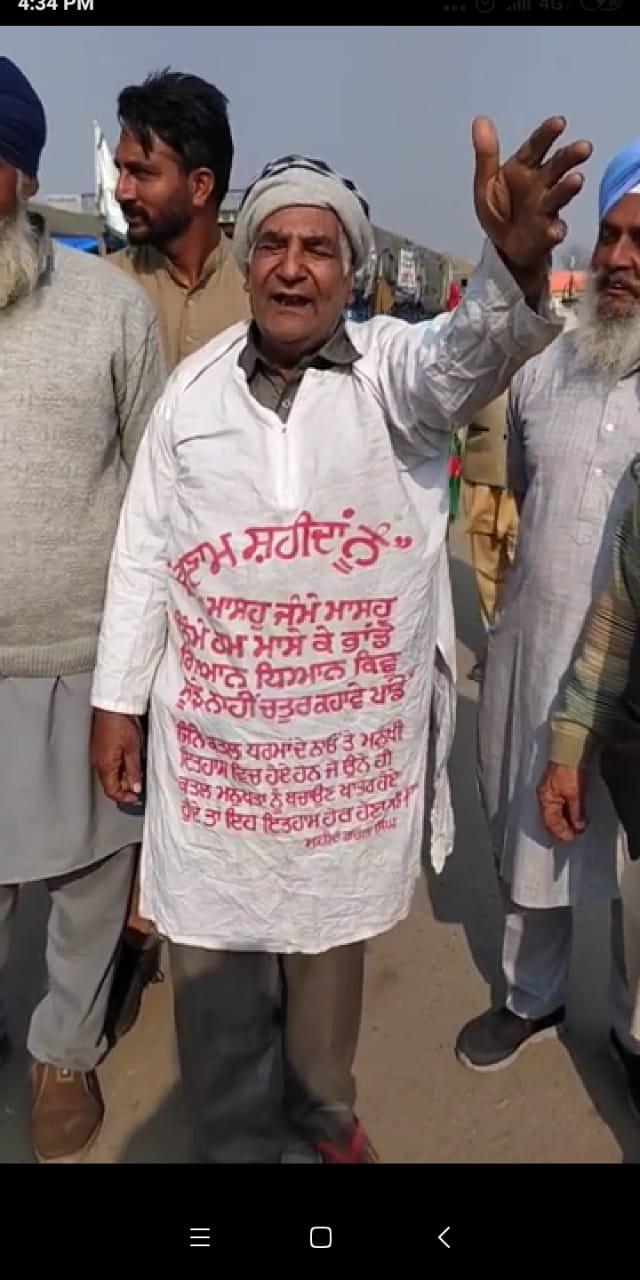
Ravinder Pal
He left home at Ikolaha village near Khanna town in Punjab’s Ludhiana district against the wishes of his family members to take part in ‘Dilli Chalo’ campaign on November 25. However, he got high fever on December 1 and finally died in a hospital in Khanna town. He is survived by three sons and a daughter.
“He was actively participating in the protests that had begun in Punjab soon after the three laws were passed by the government. On November 24, he sought my mother’s permission to go to Delhi as part of the Dilli Chalo call given by several farmers’ unions. However, when my mother asked him not to go, citing his poor health conditions, he requested me to convince her. Even I requested him to stay home because he was not keeping well. But he said, he wants to go one last time for this protest because it is for everyone’s rights,” Pal’s youngest son Praveen Kumar said.
Praveen added, “He promised me that we would return in two days. Following that I asked my wife to pack his clothes, medicines and other belongings. He had taken only two sets of clothes, medicines for two days and a blanket.”
Also read: Farmers’ Protest: No, Punjab Farmers Aren’t Rich; Over 40% in a Debt Trap
Talking about how his father had asked him to keep a tab on TV news channels and keep them informed about the nature of coverage of the protest by national media, he said, “When the confrontation was taking place between the police and agitating farmers, I was scared and called him to find out about his well being. To my surprise, he was unfazed by the police brutality. He said that they have broken the barricades to reach Delhi. I still remember him telling me that the Modi government will have to withdraw the laws. WIth his poems and creative ways of registering descent, he had emerged as an attraction for everyone out there.”
On December 1, Pal told his son that he was ill with fever. However, he did not return despite his family’s requests, instead promising to return after the first round of negotiations on December 4. As his health deteriorated further, Praveen brought him back from the protest site.
“The doctors said he had suffered cold exposure and was down with pneumonia (lung infection). When we noticed no improvement in his health condition, we rushed him to Ivy Hospital, Khanna, for multi-speciality treatment. Fearing infection of corona virus, he was admitted in isolation ward. He breathed his last on the morning of December 5,” Praveen said.
Pointing out that Pal’s eldest brother, who retired from the elite National Security Guard as a commando with the Special Operation Group, runs a travel agency along with the other brother, he said, “It pains us when the farmers are called Khalistanis, Naxalites and anti-nationals.”
Ravinder Pal and Balbinder Singh are just two of the many who have suffered such a fate. The list goes on.
Equally painful is the story of Baba Ram Singh of Karnal district in Haryana, who shot himself dead at Singhu Border after he “failed to to tolerate the plight of farmers”. Also called as Nanaksar Singhra Wale, he was a religious priest at a gurudwara in Karnal with a huge following.
Another farmer, Makhan Khan, a resident of Moga in Punjab, died of cardiac arrest. He is survived by four sons and two daughters. Gurpreet Singh, 35, was a marginal farmer from Patiala in Punjab. He died in an accident when his tractor trolley was hit by a truck while he was coming to join the protests in Delhi.
Farmers’ Demands
The Government of India promulgated three ordinances in the first week of June 2020, which dealt with agricultural produce, their sale, hoarding, agricultural marketing and contract farming “reforms” among other things. The ordinances, passed in the Rajya Sabha by an unprecedented voice vote, became laws on September 28.
Also read: Tried, Tested, Failed: Why Farmers are Against Contract Farming
The acts have been described as “anti-farmer” as the farm unions believe that the laws will open the sale and marketing of agricultural products outside the notified Agricultural Produce Market Committee (APMC) mandis. They have argued that dismantling the APMC mandis will encourage abolishing the purchase of their crops at the minimum support price (MSP), which is why they are demanding MSP to be written into the law.
The farmers, who have been protesting for over 25 days, are also demanding that a special session of Parliament be convened to repeal the farm laws, MSP and state procurement of crops be brought under the ambit of law, assurances be given that conventional procurement system will remain, Swaminathan Commission’s recommendation be implemented and the repeal of the Electricity Amendment Act 2020, among others.
Several rounds of negotiations with the government have failed to yield any results as the Modi-led Centre refuses to withdraw the laws, instead suggesting changes to the laws. Meanwhile, farmers from across the country are marching to join the protesting farmers at the borders of the national capital, while others are protesting in solidarity in their home states.
Get the latest reports & analysis with people's perspective on Protests, movements & deep analytical videos, discussions of the current affairs in your Telegram app. Subscribe to NewsClick's Telegram channel & get Real-Time updates on stories, as they get published on our website.









